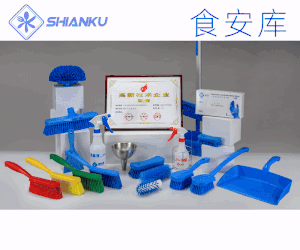食品伙伴網(wǎng)訊 2023年3月28日,歐盟食品安全局就食品酶溶菌酶(lysozyme)的安全性評(píng)價(jià)發(fā)布意見(jiàn)。
據(jù)了解,這種食品酶來(lái)自雞蛋,旨在用于釀造過(guò)程、奶酪生產(chǎn)的牛奶加工以及葡萄酒和醋的生產(chǎn)。
經(jīng)過(guò)評(píng)估,專家小組得出結(jié)論,該食品酶在預(yù)期的使用條件下不會(huì)引起安全問(wèn)題,但在易感人群中發(fā)生的已知不良過(guò)敏反應(yīng)除外。部分原文報(bào)道如下:
The food enzyme lysozyme (peptidoglycan N-acetylmuramoylhydrolase; EC 3.2.1.17) is produced with hens' eggs and submitted by DSM Food Specialties BV. It is intended to be used in brewing processes, milk processing for cheese production as well as wine and vinegar production. The dietary exposure to the food enzyme–total organic solids (TOS) was estimated to be up to 4.9 mg TOS/kg body weight per day. This exposure is lower than the intake of the corresponding fraction from eggs, for all population groups. Egg lysozyme is a known food allergen. The Panel considered that, under the intended conditions of use, the residual amounts of lysozyme in treated beers, cheese and cheese products as well as wine and wine vinegar may trigger adverse allergenic reactions in susceptible individuals. based on the data provided, the origin of the food enzyme and an exposure to the food enzyme comparable to the intake from eggs, the Panel concluded that the food enzyme lysozyme does not give rise to safety concerns under the intended conditions of use, except for the known adverse allergic reactions that occur in susceptible individuals.
本文由食品伙伴網(wǎng)食品資訊中心編輯,供網(wǎng)友參考,有任何疑問(wèn),請(qǐng)聯(lián)系news@foodmate.net。
相關(guān)政策解讀











 地區(qū):
地區(qū):






 魯公網(wǎng)安備 37060202000128號(hào)
魯公網(wǎng)安備 37060202000128號(hào)



